Availability
-
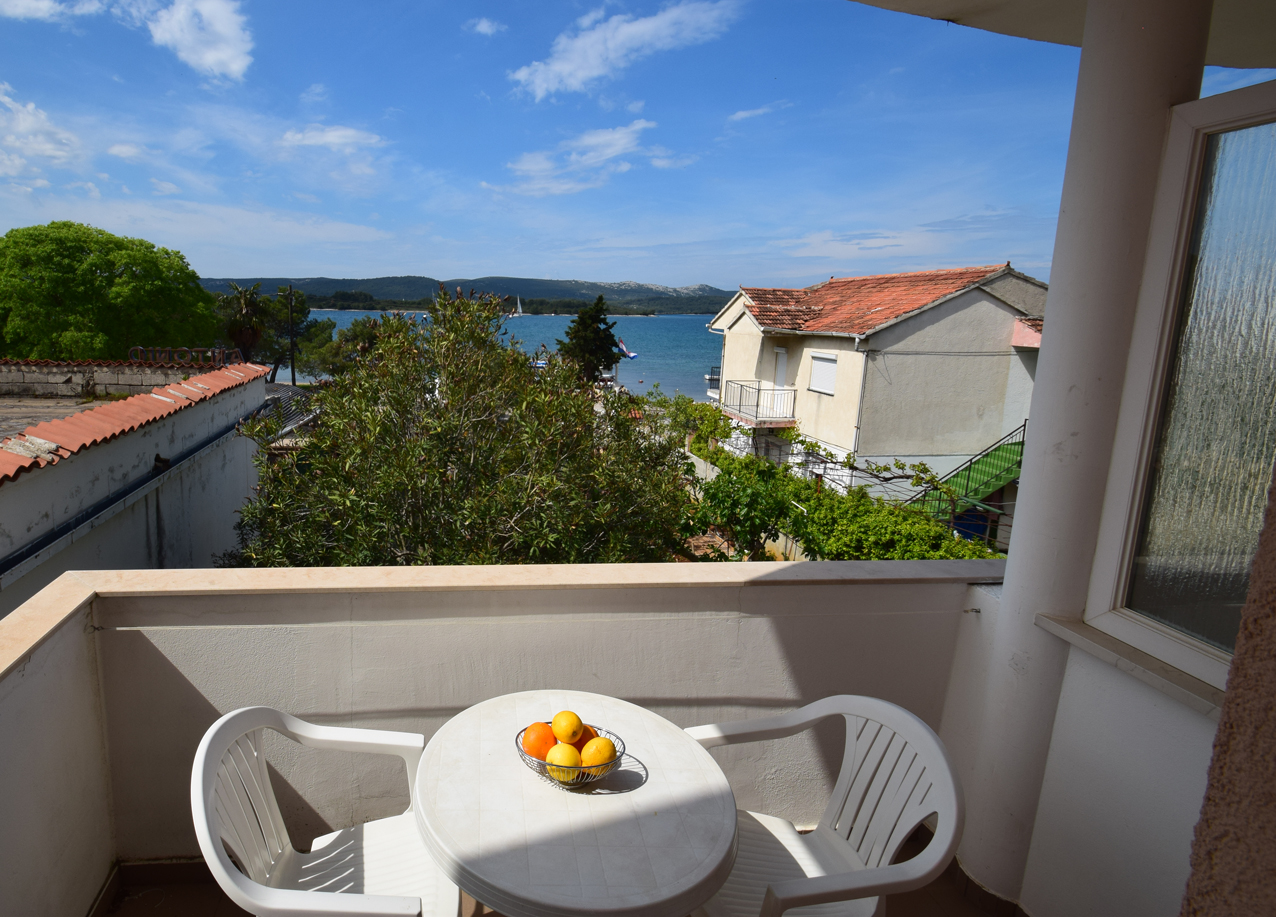 Max:
Max: Facilities:1. floor, 2 bedrooms, Air Condition, Balcony with sea view, Barbecue, Kitchen, Living room, Outdoor shower, Refrigerator with freezer, Separate entrance, Toilet, TV, Washing machine, WiFi
Apartment with 2 bedroms for 4 persons. it is on 1. floor with balcony with seaview. Equiped with free wifi, aircondition and TV.
Bed size:4+2
Size:40
-
 Max:
Max: Facilities:1. floor, 2 bedrooms, Air Condition, Balcony with sea view, Barbecue, Kitchen, Living room, Outdoor shower, Refrigerator with freezer, Separate entrance, TV, Washing machine, WiFi
Apartment with 2 bedroms for 4 persons. it is on 1. floor with balcony with seaview. Equiped with free wifi, aircondition and TV.
Bed size:4+2
Size:40
-
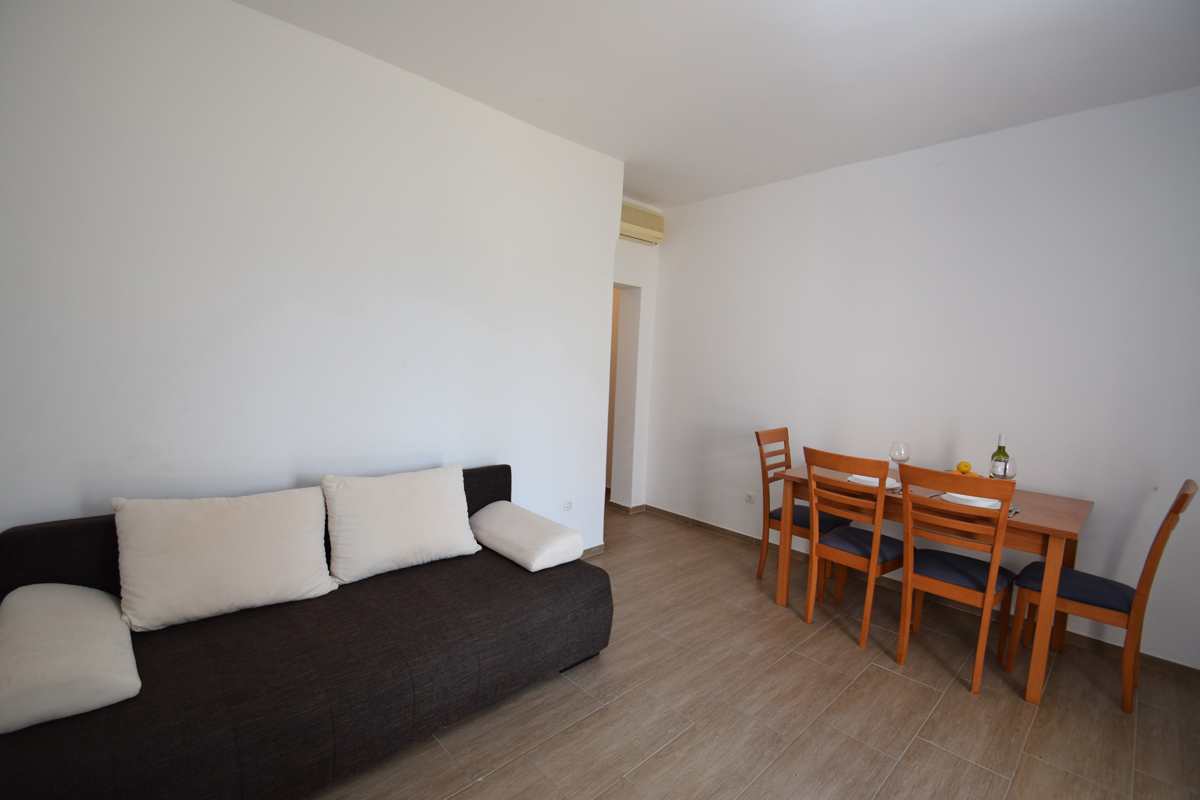 Max:
Max: Facilities:2 bedrooms, Air Condition, Balcony with sea view, Barbecue, Ground floor, Kitchen, Living room, Outdoor shower, Refrigerator with freezer, Separate entrance, Toilet, TV, Washing machine, WiFi
Apartment with 2 bedroms for 4 persons. it is on 1. floor with balcony with seaview. Equiped with free wifi, aircondition and TV.
Bed size:4+2
Size:50
-
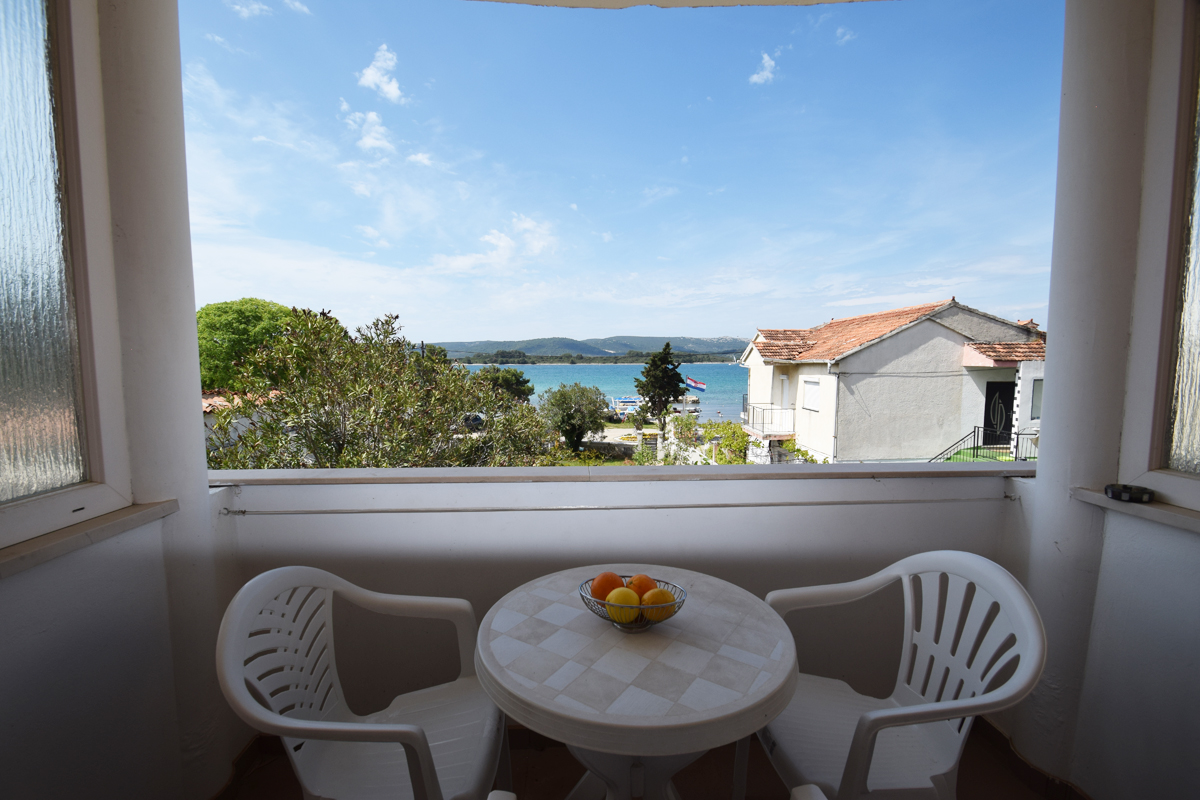 Max:
Max: Facilities:Air Condition, Balcony with sea view, Barbecue, Kitchen, Living room, Outdoor shower, Refrigerator with freezer, Separate entrance, studio apartment, Toilet, TV, Washing machine, WiFi
Studio apartment for 2 persons. It is on 1. floor with balcony with seaview. Equiped with free wifi, aircondition and TV.
Bed size:2+2
Size:25

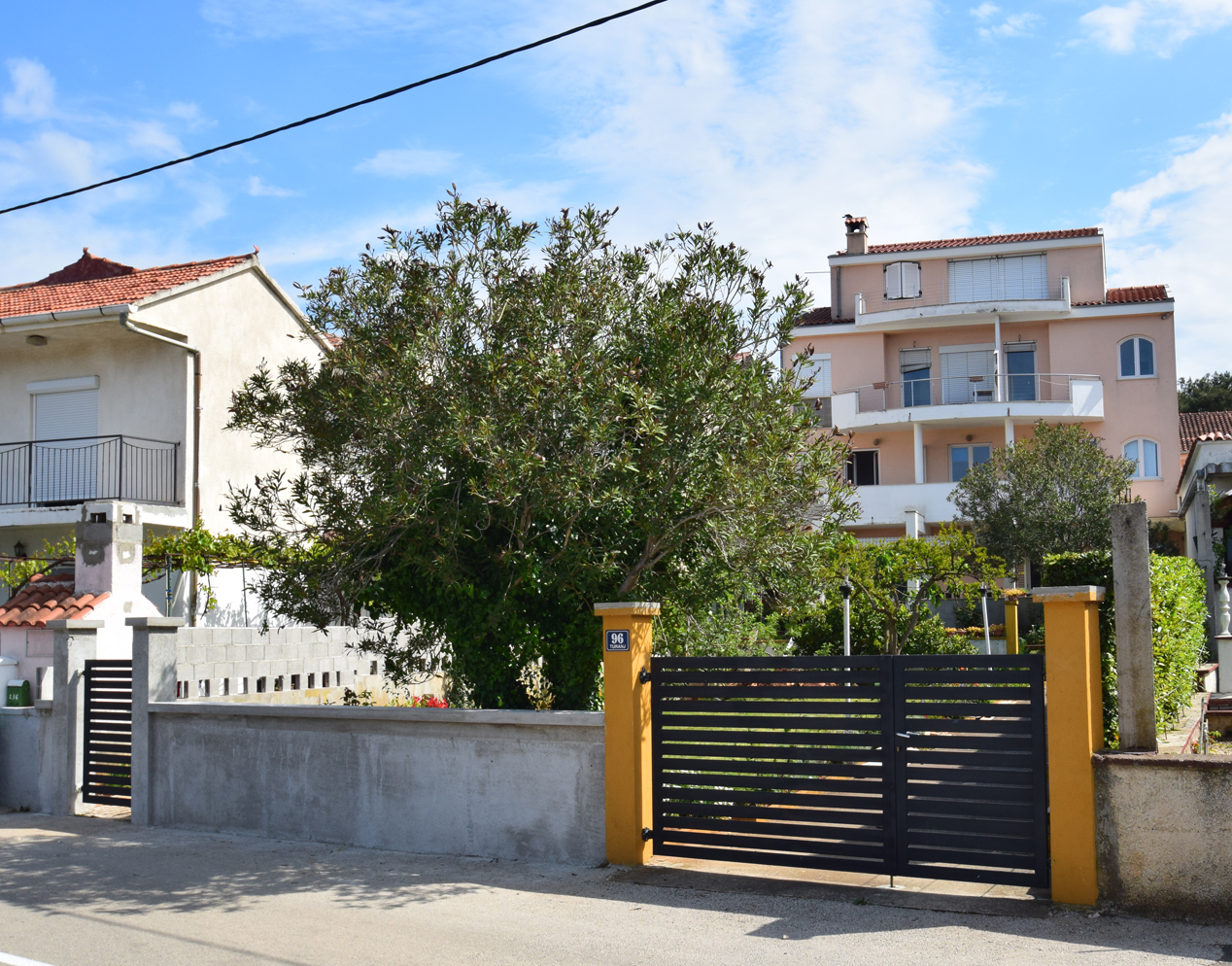
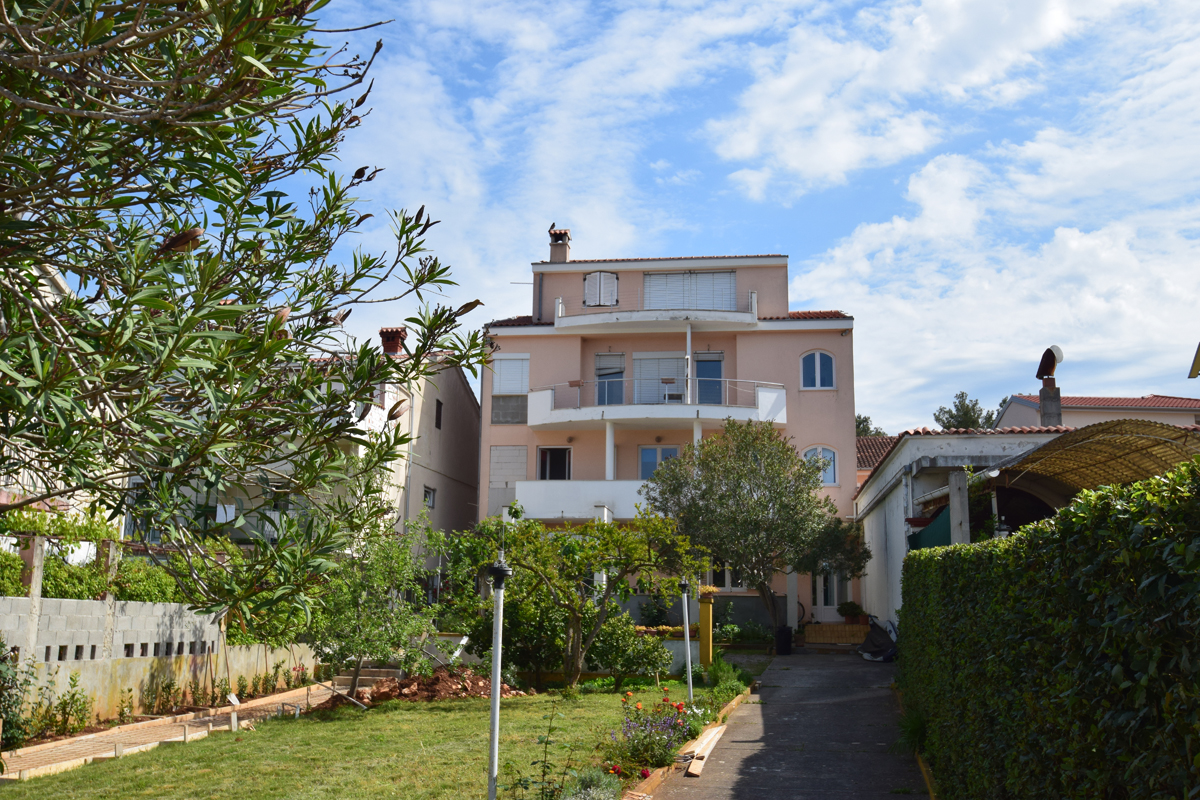
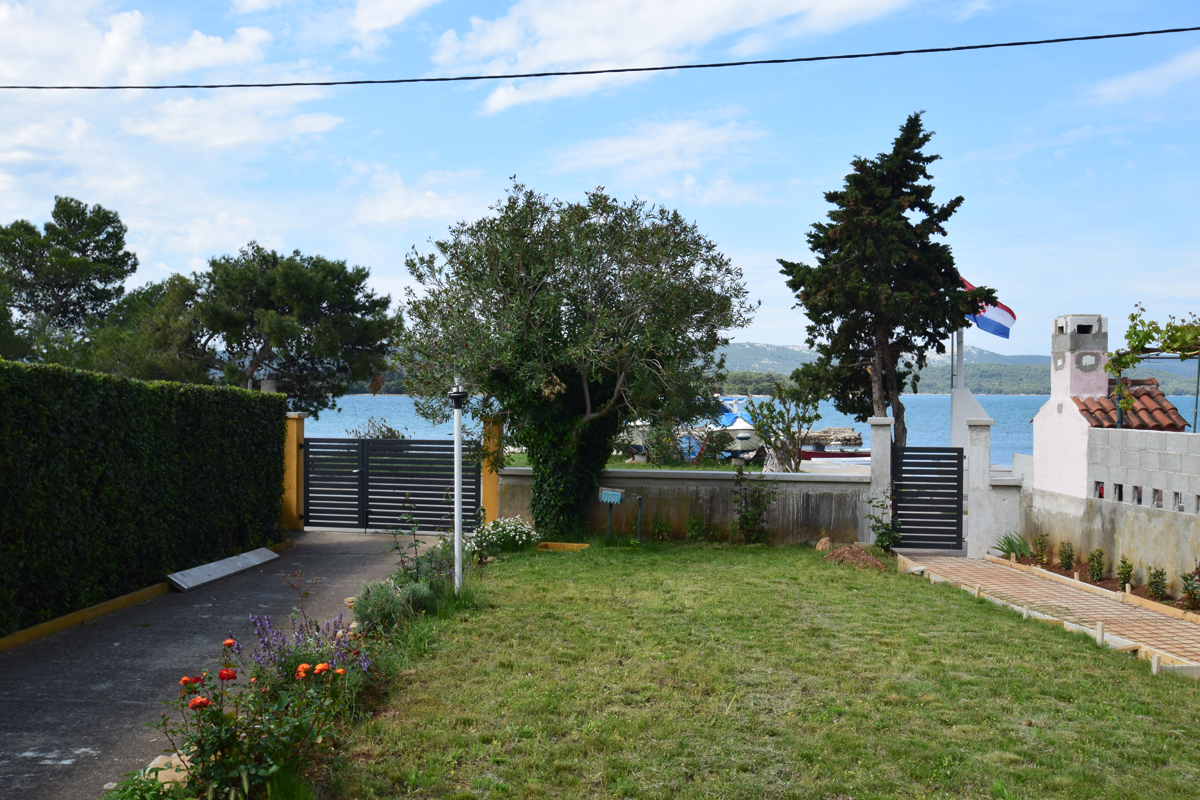

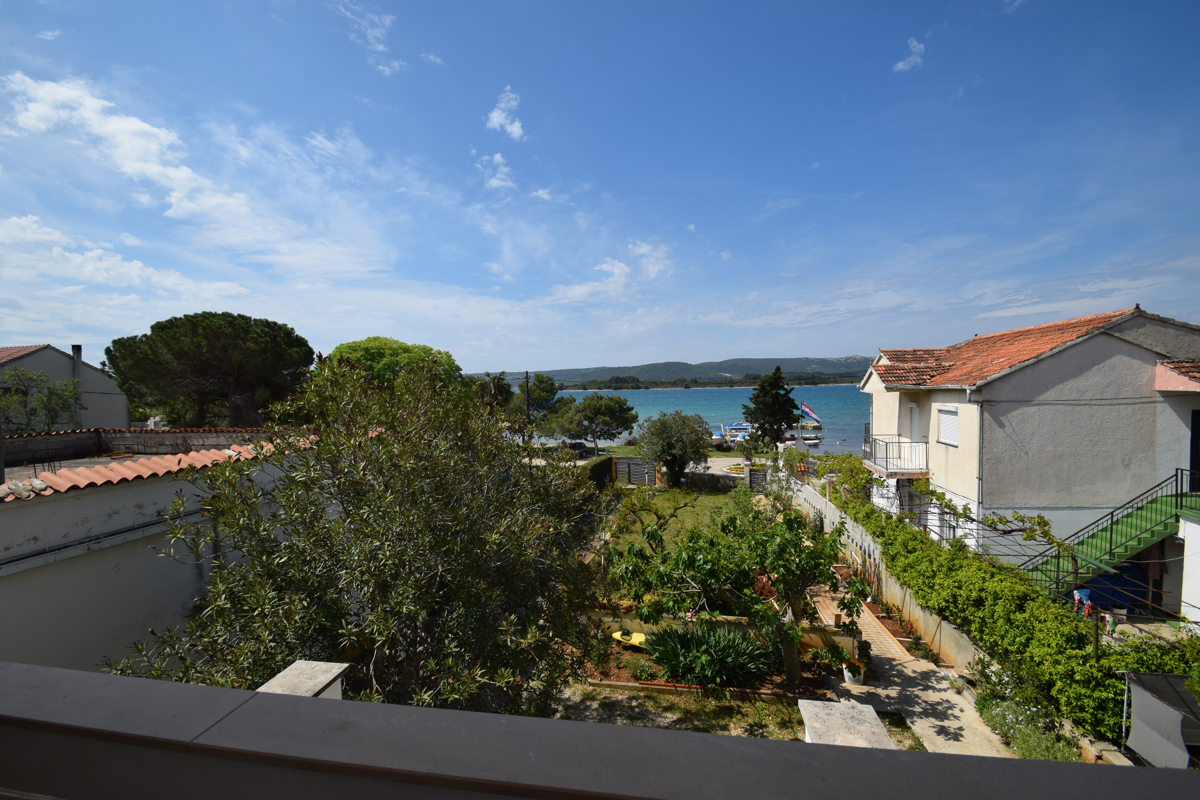
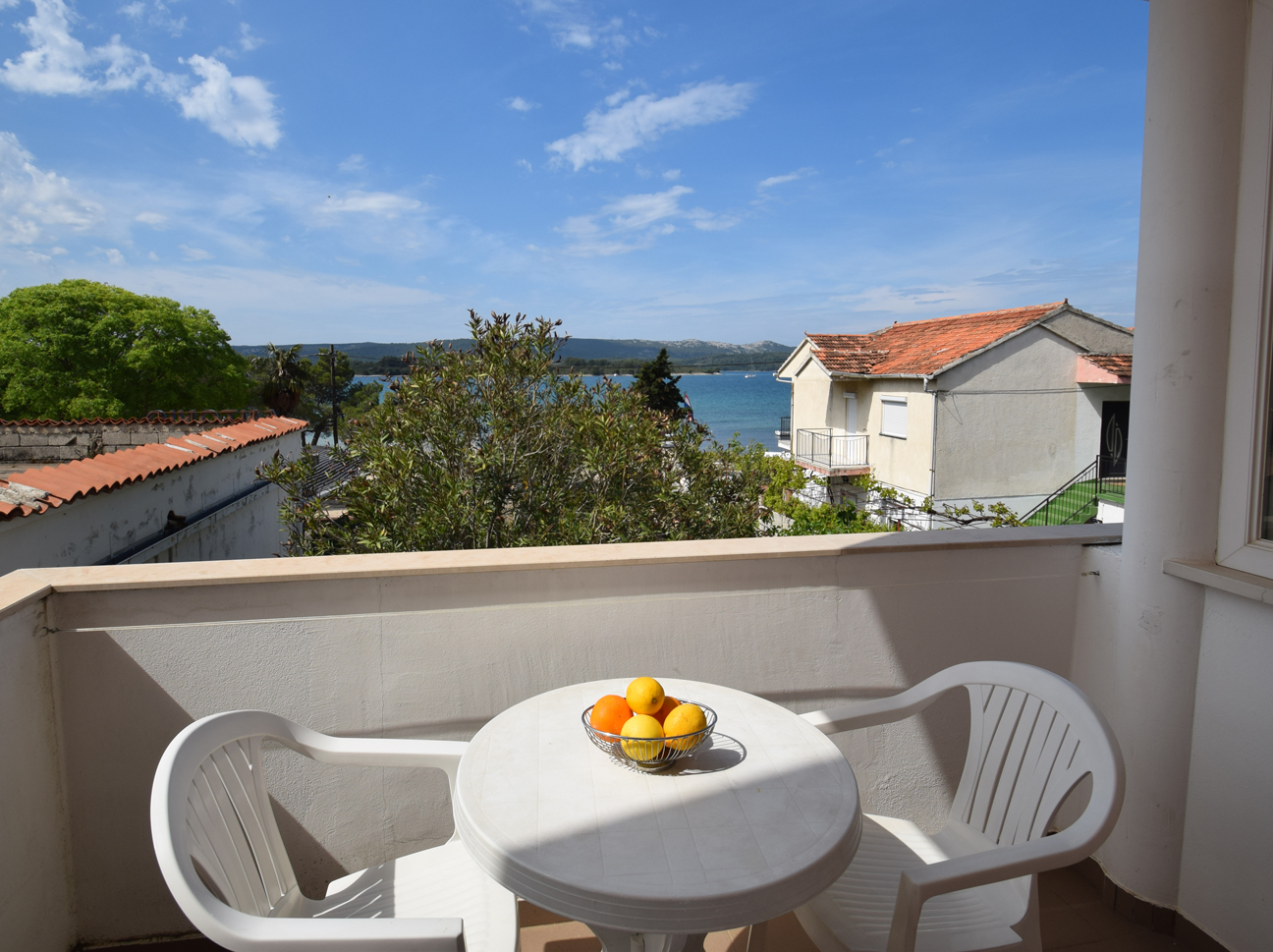

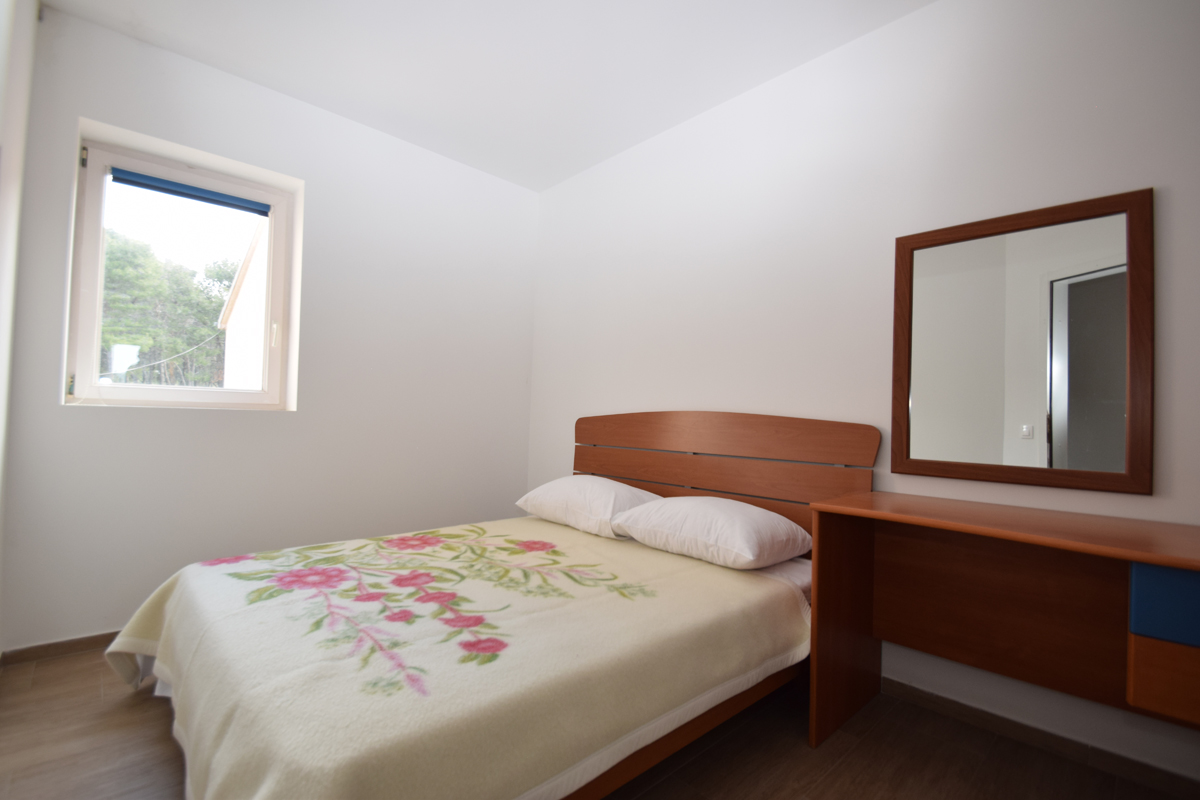

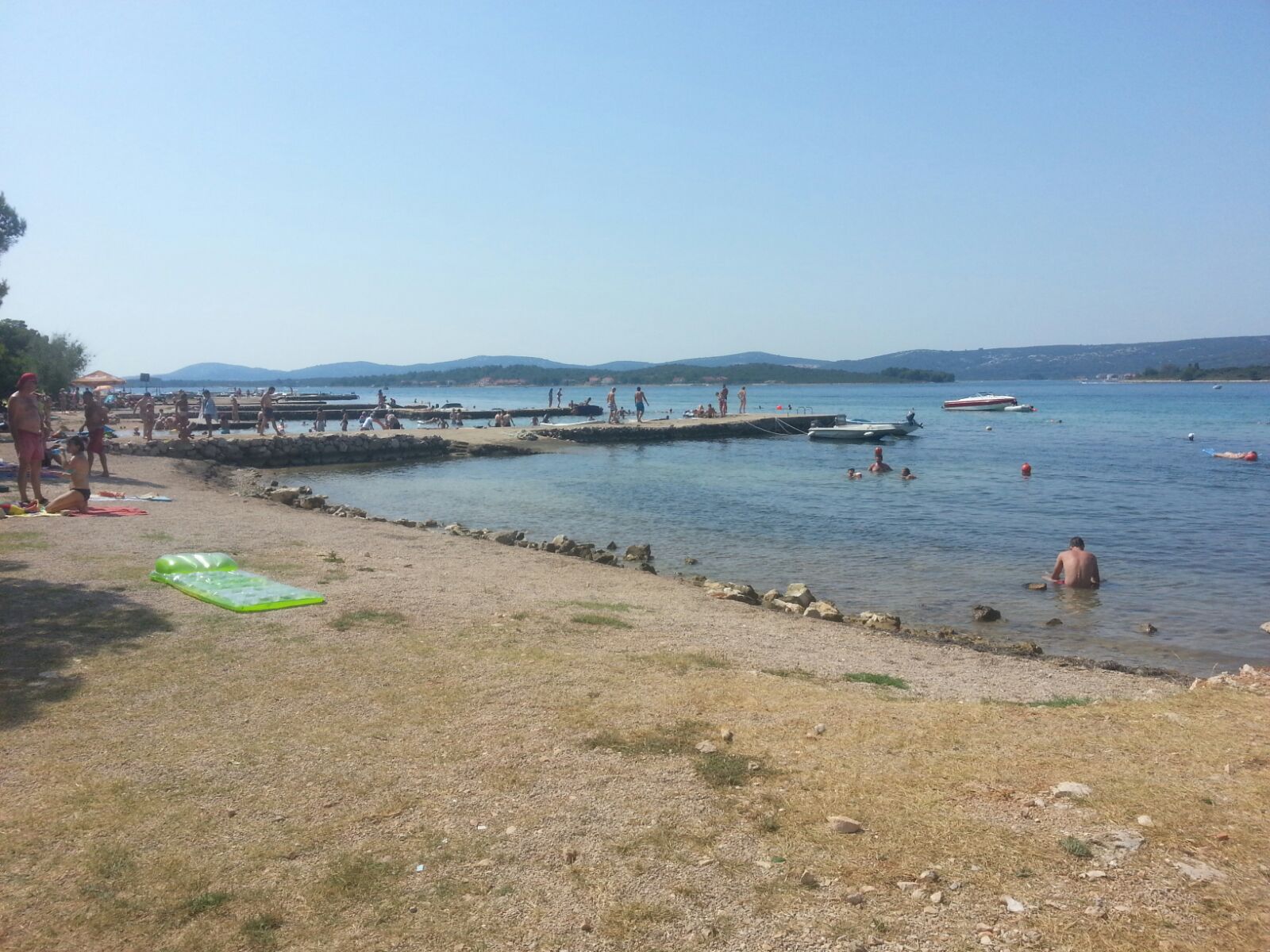
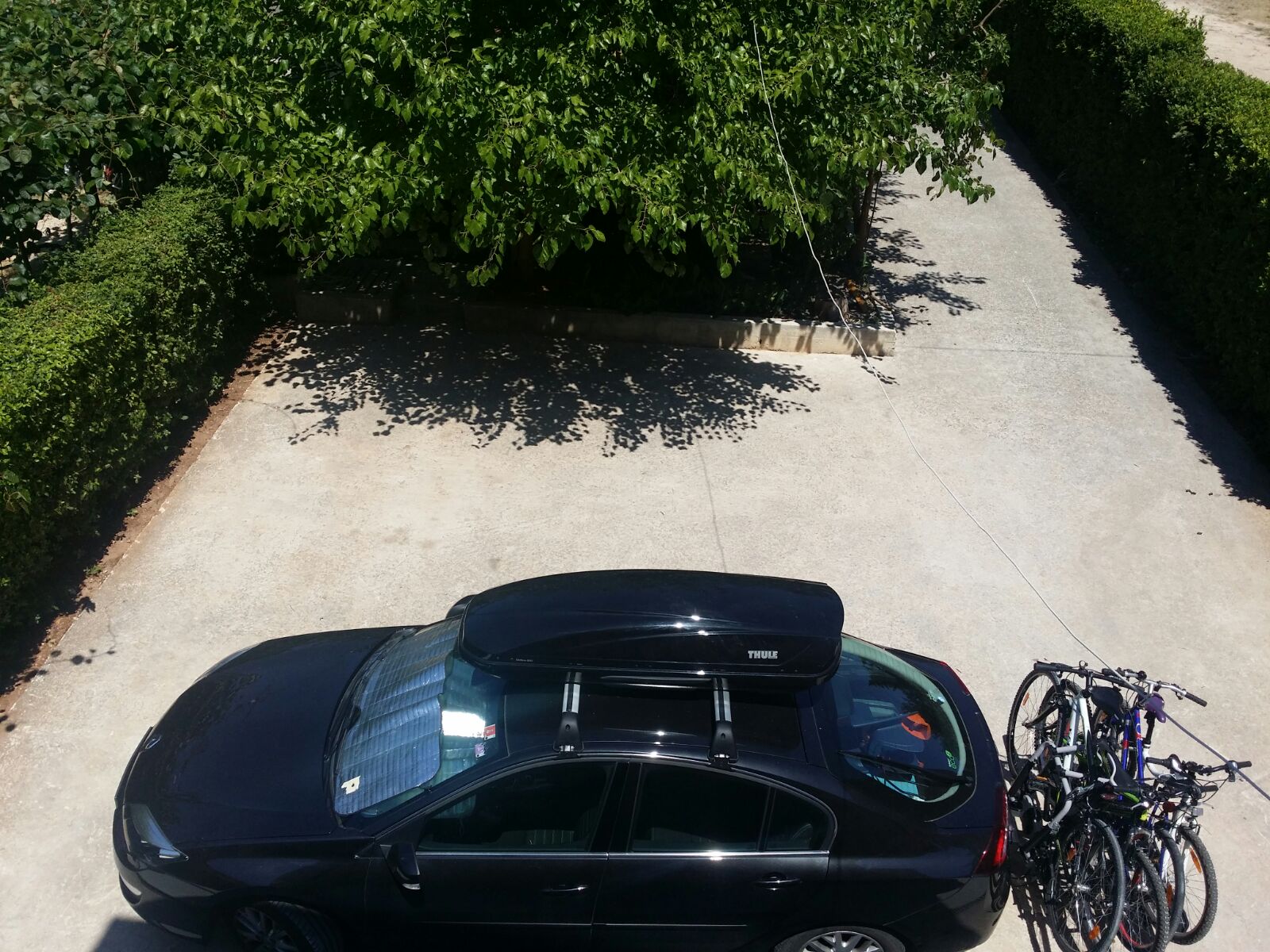
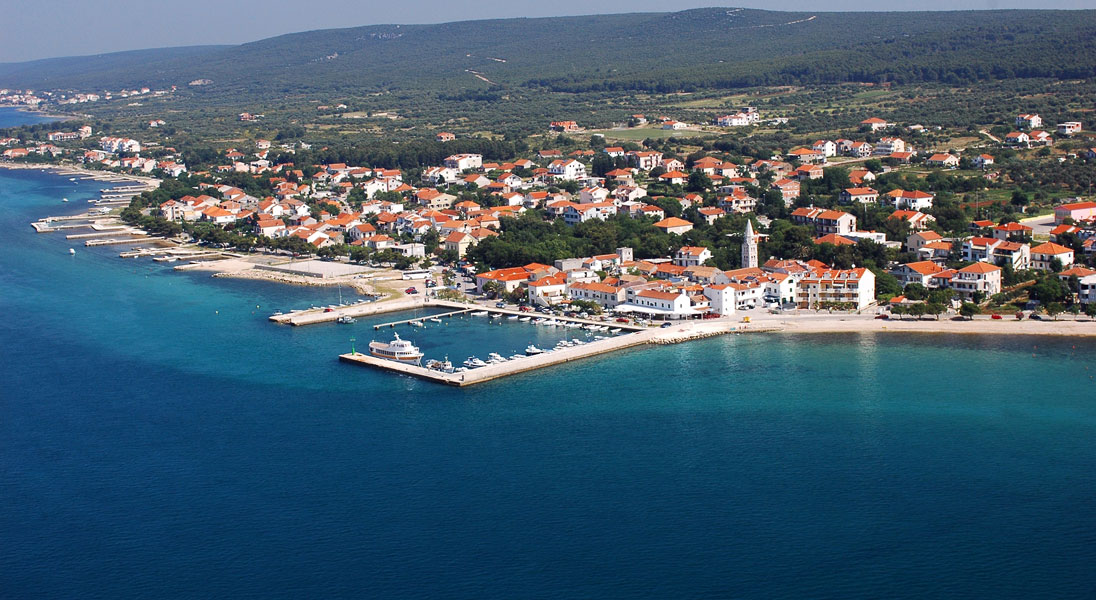 Turanj is a tourist place connected with the centre of Sv. Filip i Jakov by the promenade “Lungo mare”. The shear vicinity of larger centres makes it an attractive place which is close enough, but also far away from the crowd and commotion. Spreading along 4 km of shore, it is located in Pašman Channel
Turanj is a tourist place connected with the centre of Sv. Filip i Jakov by the promenade “Lungo mare”. The shear vicinity of larger centres makes it an attractive place which is close enough, but also far away from the crowd and commotion. Spreading along 4 km of shore, it is located in Pašman Channel  There are many sport playgrounds for waterpolo, football, basketball, handball... Up on the hill are bike tracks and sightseeing.
There are many sport playgrounds for waterpolo, football, basketball, handball... Up on the hill are bike tracks and sightseeing. Turanj, Latin Toretta, was named after towers built for defence against Ottoman attacks. It is one of the settlements governed by the Venetian Republic after the conquest of Dalmatia. Up to mid-20th century, the entire place was enclosed by walls and three towers. Throughout history, the place was the property of noblemen families De Marchi, Meštrović, Venturi, and later on the Benedetti family, and it is mentioned as a parish for the first time in 1430. There is a church devoted to Our Lady of Mount Carmel from the 15th century in the centre of Turanj. The only inhabited island in the Pašman Channel archipelago, the island of Babac, is also a part of the settlement. On the island of Babac, opposite Turanj, there is the church of St. Andrew (Crkva Sv. Andrije) from the 13th or 14th century. In 1874, the first lighthouse in Pašman Channel was built on the island.
In 1646, Ibrahim Pasha attacked Turanj with 3000 soldiers, and the Venetians burnt it for the second time to prevent it being conquered by the Ottomans. The original population of Turanj escaped to Pašman, Pag and Istria, because of Ottoman devastation, and according to captain Lorenzo Cocca (1581) from Zadar, Turanj was populated by the Morlachs who come along with the Ottomans. Above the settlement, at the location of Crni krug, there is a citadel from the Iron Age and another interesting archaeological site is Tukljača. A church was built on the remains of Roman Villa Rustica. According to the inscription on the door, the church was built in 849, as endowment of the Croatian noblemen Mogorović. That was the parish church of the village of Tukljačane devastated during the Cretan War (17th century).
Turanj, Latin Toretta, was named after towers built for defence against Ottoman attacks. It is one of the settlements governed by the Venetian Republic after the conquest of Dalmatia. Up to mid-20th century, the entire place was enclosed by walls and three towers. Throughout history, the place was the property of noblemen families De Marchi, Meštrović, Venturi, and later on the Benedetti family, and it is mentioned as a parish for the first time in 1430. There is a church devoted to Our Lady of Mount Carmel from the 15th century in the centre of Turanj. The only inhabited island in the Pašman Channel archipelago, the island of Babac, is also a part of the settlement. On the island of Babac, opposite Turanj, there is the church of St. Andrew (Crkva Sv. Andrije) from the 13th or 14th century. In 1874, the first lighthouse in Pašman Channel was built on the island.
In 1646, Ibrahim Pasha attacked Turanj with 3000 soldiers, and the Venetians burnt it for the second time to prevent it being conquered by the Ottomans. The original population of Turanj escaped to Pašman, Pag and Istria, because of Ottoman devastation, and according to captain Lorenzo Cocca (1581) from Zadar, Turanj was populated by the Morlachs who come along with the Ottomans. Above the settlement, at the location of Crni krug, there is a citadel from the Iron Age and another interesting archaeological site is Tukljača. A church was built on the remains of Roman Villa Rustica. According to the inscription on the door, the church was built in 849, as endowment of the Croatian noblemen Mogorović. That was the parish church of the village of Tukljačane devastated during the Cretan War (17th century).